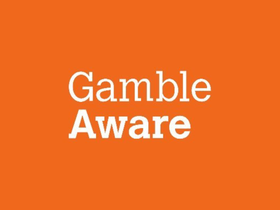If you really want to help someone with an addiction, you should safely regulate it in New York. Then, you can monitor their activity, and you can help those that need help.
Two lawmakers in New York State have introduced legislation requiring the state’s mobile sportsbooks to include warnings about the potentially harmful and addictive effects of gambling in all of their advertising.
Until now, the Empire State’s racing, pari-mutuel wagering, and breeding law has required all gaming facility licensees or applicants to include such warnings in their advertising — but NY mobile sports wagering licensees have not been included explicitly in the directive.
S1550, a bill sponsored by Sen. Leroy Comrie (D-St. Albans) and co-sponsored by Sen. Luis Sepúlveda (D-Bronx), would change that.
The bill calls for the New York State Gaming Commission (NYSGC) to cooperate with the commissioner of the New York State Office of Addiction Services and Supports (OASAS) “to ensure that all advertisements for gaming activity clearly and conspicuously state a problem gambling hotline number.”
OASAS provides funding for the New York State HOPEline, which is 1-877-8-HOPENY.
While it appears that NY sportsbook operators are not currently required to display the HOPEline number, a quick review showed that all nine of the licensed sportsbooks in the state — Bally Bet, BetMGM, BetRivers, Caesars Sportsbook, DraftKings, FanDuel, PointsBet, Resorts World Bet, and WynnBET — had the number displayed prominently on their websites Thursday.
With an eye for trying to avoid problems down the road, S1550 also calls for the NYSGC to “make available on its website information and technical support which includes, but is not limited to, guidelines for any association, corporations licensed or enfranchised pursuant to this chapter on advertising restrictions.”
There are reasons for New York to be proactive.
Regulators in Ohio complained earlier this month that sports betting operators and their third-party partners have already run afoul of laws and rules requiring clear and conspicuous messaging to prevent problem gambling and to provide a helpline number. The Ohio sports betting market launched on January 1.
The NY bill was introduced on January 12 and referred to the Senate Committee on Racing, Gaming, and Wagering, a panel chaired by Sen. Joseph Addabbo Jr. (D-Howard Beach).
In an interview last year with pokerfuse, Addabbo said responsible gaming protections, such as the ones included in S1550, were a necessary part of a responsible sports betting enterprise.
“If you really want to help someone with an addiction, you should safely regulate it in New York,” Addabbo said in March 2022, two months after sports betting launched in the state. “Then, you can monitor their activity, and you can help those that need help. Right now, you don’t know who they are, so you can’t help them.”
New York isn’t the only state to take action recently on the adverse effects of problem gambling.
Last month, lawmakers in Virginia introduced a bill to create a state panel charged with “[enabling] collaboration among prevention and treatment providers and operators of legal gaming in the Commonwealth on efforts to reduce the negative effects of problem gambling.”
Also last month, the non-profit Ohio for Responsible Gambling kicked off its new “Pause Before You Play” initiative, a similar campaign in the Buckeye State supported in part by four organs of state government.



